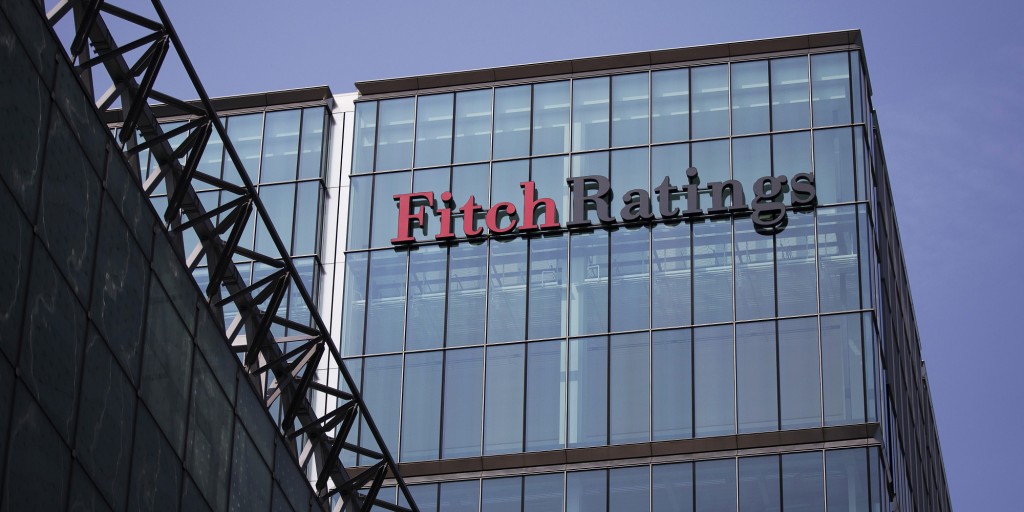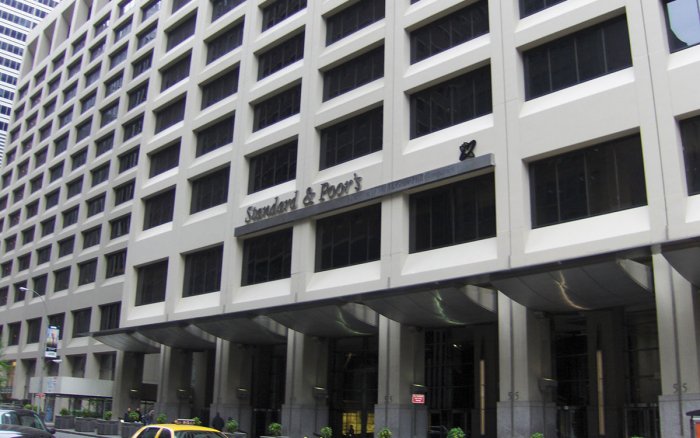Fitch affirms Hungary ʼBBBʼ rating; outlook ʼstableʼ

Fitch Ratings on Friday affirmed Hungaryʼs ʼBBBʼ sovereign rating, two notches over the investment grade threshold, with a ʼstableʼ outlook, state news wire MTI reports.
"Hungaryʼs ʼBBBʼ rating balances strong structural indicators and stronger and more stable macroeconomic performance than peers against high general government debt and risks from policy unpredictability and pro-cyclicality," Fitch said.
Fitch expects Hungaryʼs GDP growth to slow from 4.9% in 2019 to 3.5% in 2020 and 2.8% in 2021 as investment growth falls. However, it said the country "appears well-positioned to manage a shift to electric and hybrid car production over the medium term", noting that the automotive sector accounts for 5% of GDP.
Fitch said double-digit wage growth is likely to ease as the economy slows, but will still be among the highest in the European Union. It added that absolute wage levels are still low compared with most western European economies.
Fitch said inflation has risen sharply since Q4 2019 and reached a seven-year high of 4.7% year-on-year in January on the back of higher food prices and the base effect of fuel prices. Fitch expects CPI to remain temporarily over the National Bank of Hungaryʼs 3% +/- one-percentage-point target in H1 2020 before falling to an annual average 3% in 2020 and 2021.
Fitch expects monetary policy "to remain accommodative, despite the temporary inflation spike and weakness in the currency".
Hungaryʼs general government deficit has been "largely in line" with rating peersʼ in recent years, Fitch said, but it projected the deficit would widen to 1.9% of GDP in 2020 - over the 1% government target - and to 2% in 2021.
Fitch pointed to Hungaryʼs high level of state debt, estimated at 66.5% of GDP at the end of 2019, as a rating weakness, well over the current peer median of 41.1%. Fitch acknowledged a decline in FX-denominated state debt, supported recently by the launch of the governmentʼs Plus bond targeted at retail investors, but it said the bond would raise the cost of debt servicing in the medium term because of its relatively high rate - an annualized 4.95%, if held for the full five-year maturity - and "could cause other distortions".
Fitch projected the current-account deficit would widen to 0.6% of GDP in 2020 from an estimated 0.3% in 2019 as a result of stable domestic consumption and higher imports related to automotive industry investments, before reverting to a "small surplus" in 2021.
Fitch said Hungaryʼs banking sector is "stable, liquid and well-capitalized with stable asset quality, and profitable". Retail credit growth has been strong over the last year, but overall household indebtedness is low and household savings "remain robust", it added.
Hungary outperforms its rating peers in the World Bank Governance Indicators, Fitch said, but added that "perceptions of corruption and undue state influence remain high for an EU country".
Fitch said a further sustained decline in and improvement in the currency composition of state debt, increased confidence in macroeconomic policy, and an improved environment for doing business could lead to a positive rating action. Deterioration in the policy framework that could pose risks to macroeconomic stability, worsening fiscal metrics that lead to adverse debt dynamics, and weakening of the institutional framework that leads to a deterioration in governance indicators could prompt a negative rating action, it added.
SUPPORT THE BUDAPEST BUSINESS JOURNAL
Producing journalism that is worthy of the name is a costly business. For 27 years, the publishers, editors and reporters of the Budapest Business Journal have striven to bring you business news that works, information that you can trust, that is factual, accurate and presented without fear or favor.
Newspaper organizations across the globe have struggled to find a business model that allows them to continue to excel, without compromising their ability to perform. Most recently, some have experimented with the idea of involving their most important stakeholders, their readers.
We would like to offer that same opportunity to our readers. We would like to invite you to help us deliver the quality business journalism you require. Hit our Support the BBJ button and you can choose the how much and how often you send us your contributions.








